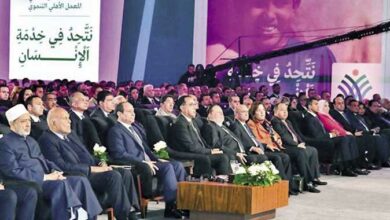
In March* 2011, protesters entered the State Security Investigation Services office in Nasr City, Cairo, and found ream upon ream of paperwork, some shredded, some intact. It was testimony to decades of laborious documentation of the activities of Egyptian citizens; some activists found their own files, complete with photographs and telephone conversation transcripts.
The act was highly symbolic. Information is tightly guarded by the Egyptian state, and citizens have historically been regarded as having no business accessing it, even when the information concerns them. Under the 1971 Constitution, only journalists were given the right to access “news and information,” and this right was itself curtailed by the catch-all caveat, “according to the regulations set by the law.”
Egypt has never had legislation enshrining the right to freedom of information, but this looks set to change, at a time when some 90 countries across the world have adopted a freedom of information bill, according to Toby Mendel, executive director of the Canada-based Centre for Law and Democracy.
“The right to information is also essential as an underpinning of democracy. If citizens are to participate in a real way in public decision making, they must have access to the information upon which decisions are being based,” Mendel wrote for Egypt Independent.
In early May, members of the People’s Assembly Human Rights Committee, together with experts, presented a government draft bill on availing records and information during a discussion at the Information Center for Technology.
The drafting of the 48-article bill was led by consultant Abdel Rahman al-Sawy, who said during the seminar that it was drawn up using United Nations recommendations on the right to information as well as American, British and European legislation as references.
An explanatory note handed out with a copy of the bill lists the principles its authors considered “fundamental” as they wrote it. They include the right of everyone to access information and limits on this freedom being the exception rather than the rule.
At the other end of the spectrum, the note also mentions the importance of protecting privacy, national security and “higher interests.”
Negotiating a balance between the right to know and the state’s reluctance to divulge its secrets is particularly tough in a country with both an expansive and secretive security apparatus and a monolithic and chaotic bureaucracy.
The tension is apparent even in the language used in the bill’s title; it uses the word etaha in Arabic, meaning availing. Compare this with the draft law submitted by a group of civil society actors that includes the Egyptian Initiative for Personal Rights and the Association for Freedom of Thought and Expression, simply titled the Freedom of Information Bill.
The idea of access to information being granted rather than constituting a right informs several aspects of the government bill.
In the government’s bill, Article 2 enshrines the right to access information “whenever its disclosure realizes a legitimate interest.” No definition of “legitimate interest” is provided.
In contrast, the civil society bill states that “every individual has the right to access information,” and imposes a duty on government bodies to release information.
The implicit understanding that access to information includes the right to use it freely within the limits of the law is turned on its head in Article 6 of the government’s draft law. The article enjoins that records and information may only be used for the purpose for which they were granted, and must be destroyed upon completion of that purpose.
The civil society bill contains no such restrictions.
In addition to not being in keeping with the spirit of freedom of information, restricting access is costly, says Amr Gharbeia, the director of EIPR’s Civil Liberties Program.
Gharbeia advocates affirmative disclosure: state bodies should periodically and routinely release information rather than require individuals to request it — an expensive and time-consuming procedure.
To this end, the civil society bill contains a requirement that governmental bodies routinely publish comprehensive information about themselves, including all details related to its organizational structure and a guide including the names of all officials in the body, as well as their powers, duties and salaries.
Both bills establish a mechanism by which requests for information refused by state bodies are adjudicated by an ombudsman. The government draft law establishes a 12-member Higher Council for Records and Information appointed by the president and charged with receiving complaints about refused requests for information, among other duties.
Current and former dual nationals, as well as Egyptians who are married to foreign nationals, would be forbidden from being members of the council. Three of its members represent the intelligence services, national security and the Interior Ministry.
The council would only be obliged to meet once a month, making it impossible for it to deal with all the likely complaints it would receive, Gharbeia says. The appointment of its members by the president is also cause for concern about its independence.
Under the civil society bill, the president of the republic would appoint an information commissioner, chosen by a majority of the People’s Assembly members, to monitor the implementation of the law and handle disputes. Parliament’s choice of the information commissioner is done in the spirit of preserving his independence from the executive branch. Additionally, a supreme information council would be charged with putting in place public policies relating to disclosure and circulation of information.
Moreover, the civil society bill limits exceptions to access to information by defining them in detail, including the question of national security, which is commonly used as an elusive notion in draft bills, restricting liberties.
Gharbeia suggests that a spirit of openness is missing from the government draft law.
“Creating an openness culture requires trust and a belief that openness is not harmful. The government draft [law] works against this by imposing heavy prison sentences for violations,” Gharbeia says.
However, Gharbeia says the parliamentary Human Rights Committee, headed by Mohamed Anwar al-Sadat, is leaning toward combining both bills, taking the best from each of them.
*Correction: This sentence originally stated that State Security Investigation's headquarters were stormed in February.




